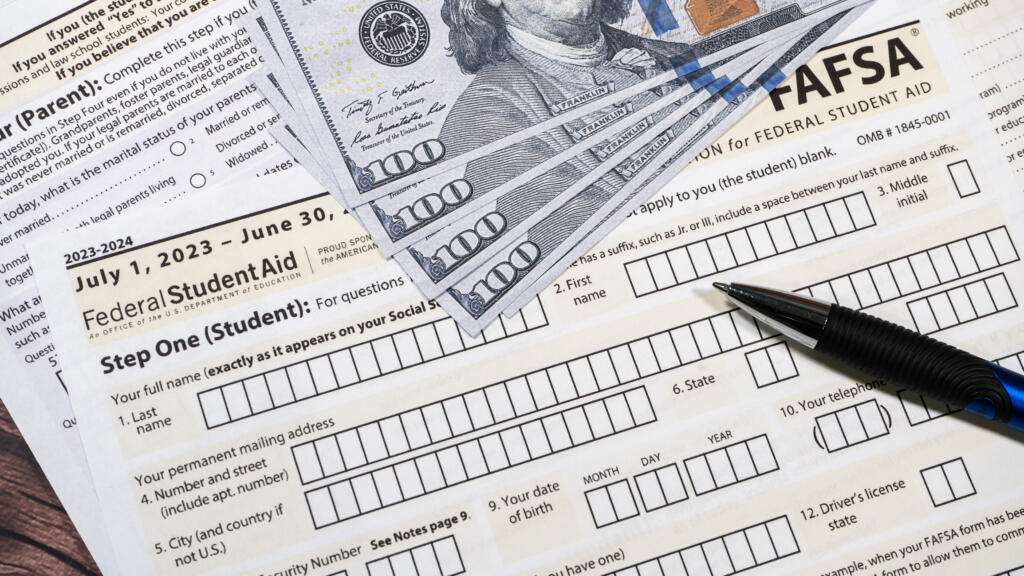Most four-year colleges and universities in Washington have extended decision deadlines for prospective students after compounding delays in the federal financial aid system have left students across the country in a bind.
This year’s Free Application for Federal Student Aid (FAFSA) underwent sweeping updates after members of Congress approved changes in 2020 to make it easier and faster to fill out. IRS data is now used to automatically fill out sections of the financial information asked for in the form.
The changes did not stop with the form itself.
Lawmakers also expanded eligibility for federal aid by increasing the number of low-income students who qualify for a Pell Grant and implementing a new formula that relies less on a family’s income when calculating how much aid may be available.
The new formula accounts for annual inflation as well, a change that was not implemented immediately and led to even more delays in the rollout, as first reported by The Washington Post.
The goal was to make the process easier, faster and more lucrative for prospective college students, but the reforms have taken the Education Department years to implement. This year’s FAFSA was not made fully available until mid-January, more than two months later than the usual Oct. 1 opening date.
All public four-year institutions in Washington have extended their deadlines for commitments to enroll from National College Decision Day on May 1, to June 1, according to a statement from the Washington State Council of Presidents, an association of the state’s six public universities.
“Delays in implementing the FAFSA continue to create stress and challenges for students and families,” the association’s statement reads. “However, Washington’s public, four-year institutions are committed to removing barriers and challenges to ensure that families can access affordable, quality education at our institutions.”
Several private institutions, including Gonzaga University, Whitworth University and Seattle University, have also extended their deadlines by a month.
The extension should allow students and their families more time to navigate the financial aid process. It should also allow colleges more time to provide accurate financial aid offers, since the Department of Education announced it would not get students’ FAFSA information to colleges and universities until early March.
For many students, the problematic rollout of the new FAFSA appears to have led to a significant drop in the number of students who apply each year. The Department of Education said Tuesday they’ve received only 4.7 million of the usual 17 million applications they receive annually.
Mt. Spokane High School Senior Elizabeth Clouse said she feels like many of her peers have elected to find other ways to pay for higher education, or have opted for different career paths.
“I think a lot of seniors in my class are doing a lot of untraditional things,” Clouse said. “They’re using scholarships, or they’re considering trades, like estheticians. I think that is due to a scare of how expensive college is.”
Clouse plans to attend Eastern Washington University next year to study nursing. Her experience with the application this year went relatively smoothly, all things considered.
“It was frustrating, but I understand there’s all sorts of red tape with these government programs,” Clouse said.
For Spokane-area seniors who did apply, the delays and extensions have meant more anxious waiting for those ready to pursue higher education.
Aurora Guertin, a senior at Mt. Spokane High School, plans to attend BYU-Idaho next year to study graphic design. Guertin said the new FAFSA forms seem to be causing more headaches than the previous iteration.
There are a variety of unresolved errors with the 2024-2025 FAFSA launch that are being tracked by the Department of Education and cataloged online; they include troubles accessing an open application and submitting it, incorrect eligibility information being shared and breakdowns of the application system that bar undocumented students and families from filling out the FAFSA.
With her own application, Guertin said she received notification that she did not qualify for any aid, which she hopes is one of those errors. She said she has yet to see the increase in disbursements promised by the reform.
“As long as it gets cleared up, then I’ll be OK with it,” Guertin said. “But it is a little bit annoying that they had a system that seemed to work and then they changed it.”
Completing the application took months for Mead High School senior Kayli Beasley, who plans to study dance with an emphasis on pedagogy at BYU-Idaho.
Beasley and her father started the application during the soft launch in December, and struggled to enter her social security number correctly. The online portal repeatedly and inexplicably replaced the first five digits with zeros, she said.
Beasley said they tried reaching out to resolve the issue via the text help line for FAFSA, only to receive notification that the service was overloaded with requests for assistance.
“It would just turn us away because the line was too full to use it,” Beasley said. “So then we tried to email them, but this was hilarious to me, they’d email me back but they would say ‘Hi, Zachary.’
“My name is not even Zachary,” she added.
She was finally able to get the issue resolved after speaking with a representative on the phone, who deleted the account and had her start the application over again.
Beasley said it took weeks of calling every day to get to that point. Several calls were dropped and resulted in a busy tone, and others were ended after a representative informed her father they could only speak to Beasley as the applicant.
“It did take over a month just to figure that out, which is too long for a government agency to be able to figure out if they’ll give me money or not for college,” Beasley said. “It was a mess.”
Correspondent Luke Blue contributed to this report.



